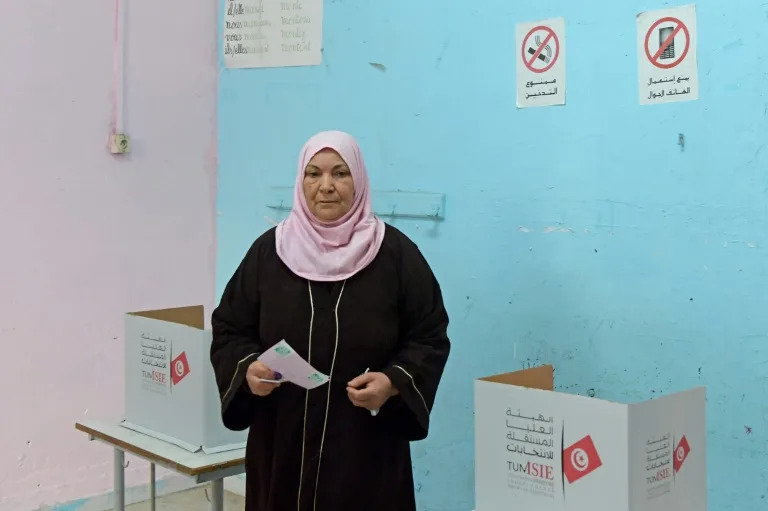Tunisians vote in a parliamentary election boycotted by most parties on Saturday in another step toward building a hyper-presidential system under Kais Saied, who carried out a coup a year and a half ago.
The new chamber of 161 deputies will replace the one frozen by Saied on July 25, 2021, but will have restrictions after the adoption of a new Constitution in a referendum marked by massive abstention.
The deputies will not be able to remove the president and it will be practically impossible for them to censure the government. In addition, the head of state will have priority to have his laws approved.
Most parties boycotted these elections, including the Islamist-inspired Ennahdha movement, the president’s sworn enemy, which dominated the dissolved Parliament.
This resulted in a cold campaign, with hardly any posters or serious debates and little interest from the population, concerned about the deterioration of their living conditions.
“The vote is a formality to end the political system imposed by Kais Saied and concentrate power in his hands,” political scientist Hamza Meddeb told AFP.
“The Tunisians know that Parliament will not have any political power,” he added, predicting a “very weak” participation.
The 12 million inhabitants of the North African country are much more concerned about the rising cost of living, with inflation of almost 10%, and the recurring shortage of food such as milk and sugar.
The country has been plunged into a political crisis and has been highly polarized since the coup carried out by Saied in 2021, arguing that the country was ungovernable since the triumph of the Arab revolution in 2011.
Added to the political convulsions is a serious economic situation aggravated by covid-19 and the war in Ukraine, on which it depends for its wheat imports.
For Hamish Kinnear, from the consultancy Verisk Maplecroft, the return of Parliament “will facilitate Tunisia’s relations with its main foreign partners, ending 17 months of institutional uncertainty.”
That will give him more room to raise funds “thanks to a return to greater political predictability, even if the democratic legitimacy of legislative elections is weak.”

